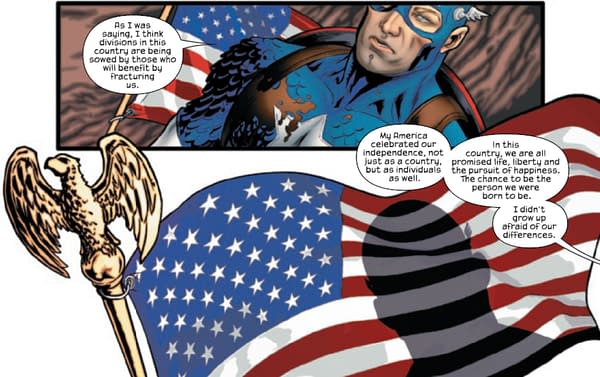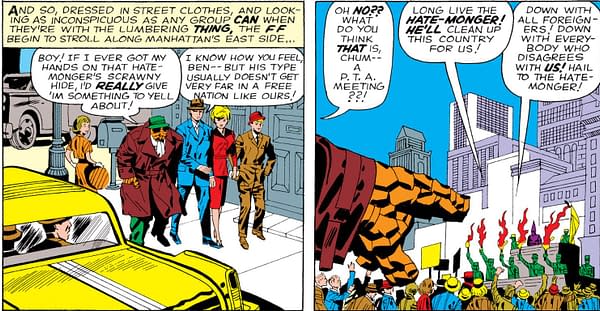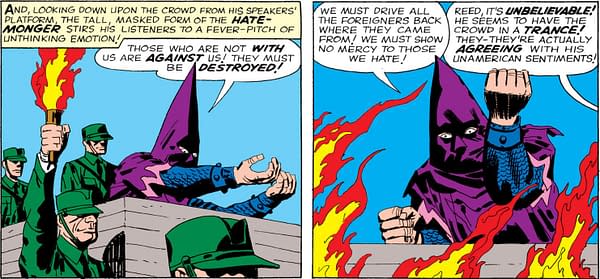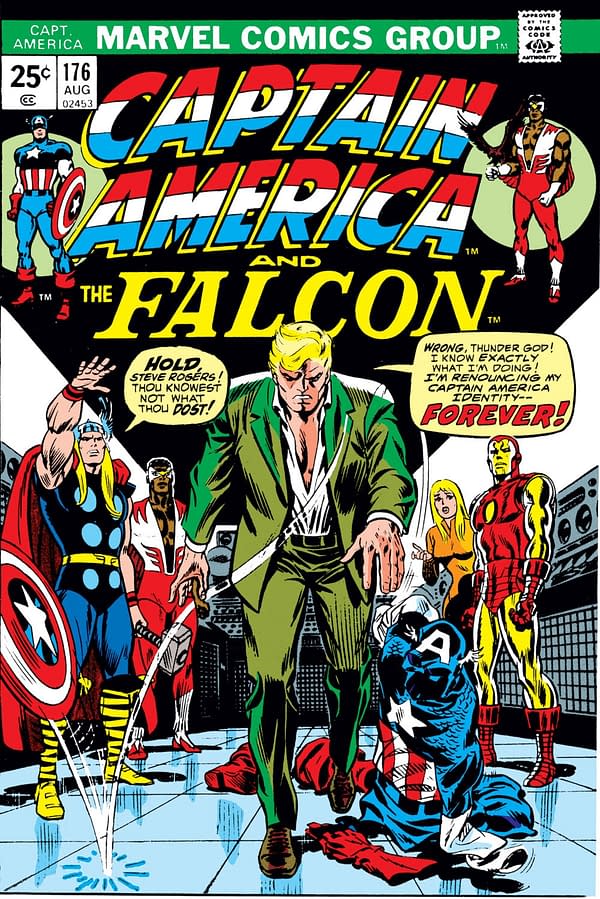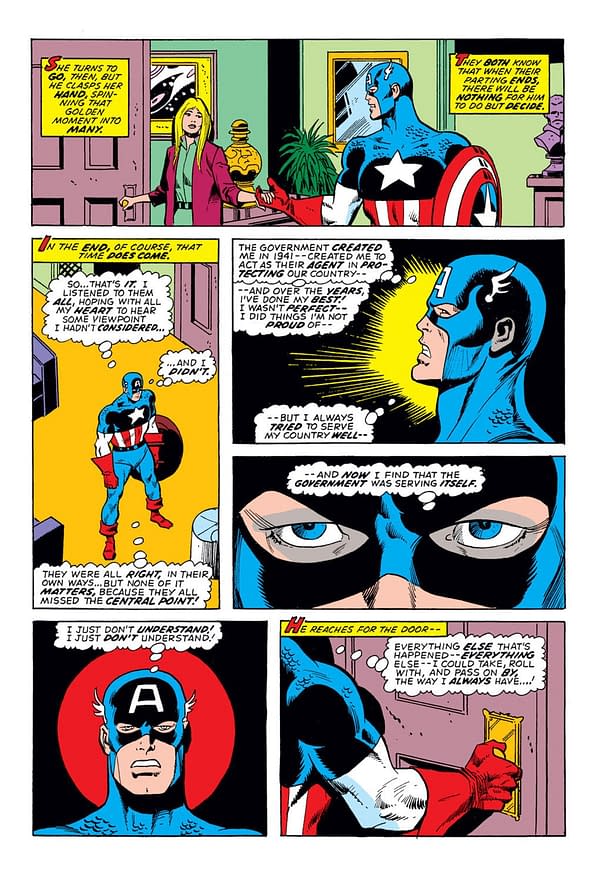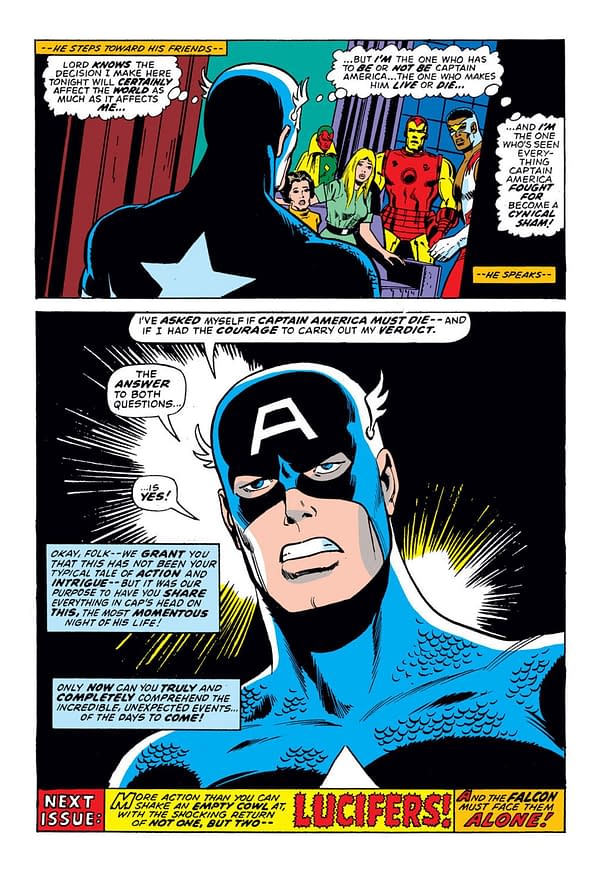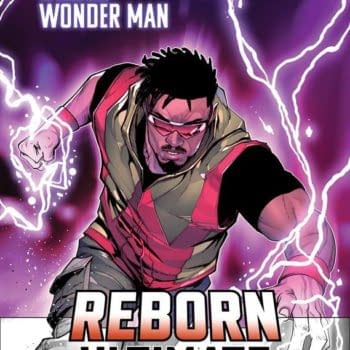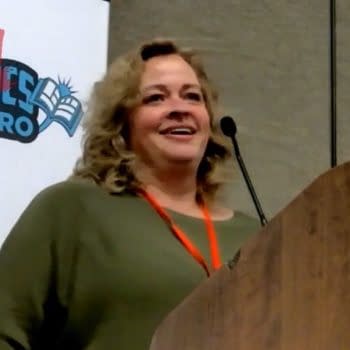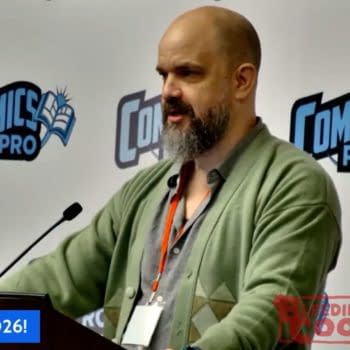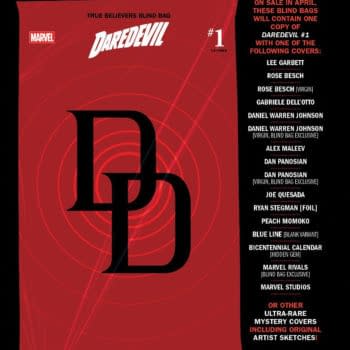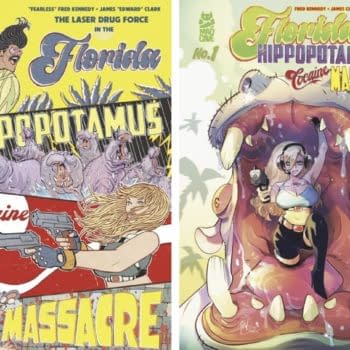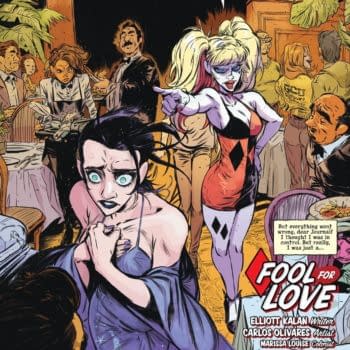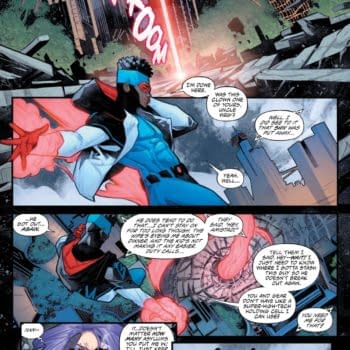Posted in: Avengers, Comics, Comics Publishers, Current News, Marvel Comics | Tagged: captain america, stewart lee
Mark Waid, Stewart Lee & American Superheroes After Trump Election
Mark Waid and Stewart Lee, both talking about American superheroes after the Presidential election of Donald Trump
Article Summary
- Mark Waid questions the goodness of America post-Trump election impact on superheroes.
- Stewart Lee draws parallels between past comics and the Trump era's cultural climate.
- Jack Kirby's Fantastic Four foresaw hate-driven politics, resonating with today's world.
- Captain America's past struggles with U.S. values mirror reactions to Trump's victory.
In 2020, Joe Biden got 51.3% of the vote compared to 46.9% for Donald Trump. In 2024, Kamala Harris got 47.9% compared to 50.4% for Trump. That's basically a 3.5% swing and a 2.5 point lead. It may be a very impactful difference but in pure statistical terms of measuring how people feel, it's not much.
But on that basis, Superman writer Mark Waid stated, as we previously reported, "I don't believe in the basic goodness of my fellow Americans anymore, and without this, I cannot write superheroes. There's no point." But even if you agree with Mark Waid's definition of goodness, it's only a 2.5% lead against it.
In yesterday's Observer newspaper, British comedian and occasional comic book writer Stewart Lee writes, "working-class Jewish autodidact visionaries, producing the pop art primers of tomorrow on a pittance, drew Captain America punching out Hitler in the early 40s, and because formerly one-dimensional superheroes were made thrillingly two-dimensional by acid-fried college dropout creatives in the 60s and 70s, Marvel Comics, though their roots are obscured, remain broadly liberal, even almost counter-cultural. That's how I reverse-engineer my infantilised pseudo-intellectual desire to keep reading them at the age of 56, anyway."
Which sounds about right. He continues with one of my favourite definitions of The King, "Indeed, in September 1963, Jack Kirby, the 12-cent William Blake of the Lower East Side, drew the Fantastic Four fighting the Hate-Monger, a villain whose superpowers were not the ability to control soil or infuriate moles, but the ability to whip up hate. "We must drive all the foreigners back where they came from. We must show no mercy to those we hate," he cries, in his purple hood, as his followers agree – "Long live the Hate-Monger. He'll clean up this country for us!" – and the Invisible Girl observes, helpfully: "He seems to have the crowd in a trance. They … they're agreeing with his un-American sentiments." Hang on! Was that Fantastic Four Issue 21, 61 years ago, or Sky News last week?"
Stewart Lee also recalls that "In 1974, as Watergate's curtain fell on Nixon, the comics writer Steve Englehart, a former soldier who became a conscientious objector, had Captain America abandon his costume and take on the identity of Nomad ("the man without a country") because he couldn't square the fictional character's values with his country's corrupt figurehead. My Captain America would not sling his vibranium shield for Donald Trump. The success of Trump invalidates the shared if naive, notion of what America is."
But only by 2.5%. This is, of course, enough to make a huge difference, certainly to public policy, nationally and internationally, causing earthquakes around the globe and devasting some on an individual basis. But as for America's soul? Statistically, it's only 3.5% of a different soul than what it was before. Some people might find that even more worrying.


